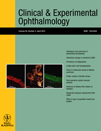High prevalence of astigmatism in the 40- to 64-year-old population of Shahroud, Iran
Authors
Affiliations
Abstract
Background: The prevalence of astigmatism, its axis and determinants were determined in the 40- to 64-year-old population of Shahroud, Iran.
Design: Population-based cross sectional study.
Participants: Using random cluster sampling, 6311 subjects were invited for eye examinations. Of 5190 participants (response rate=82.2%), data of 5020 were eligible for analysis.
Methods: Participants received visual acuity measurement, manifest refraction and eye examinations.
Main outcome measures: The prevalence of astigmatism based on cylinder powers of more than 0.5, 1 and 3 D were studied.
Results: The prevalence (and 95% confidence interval) of astigmatism based on a cylinder power worse than 0.5, 1, and 3 D was 49.1% (47.6-50.5), 24.1% (22.9-25.3), and 3.4% (2.9-3.9), respectively. In a multiple logistic regression model, the prevalence of astigmatism was higher in men (odds ratio=1.25) and increased with age (odds ratio for each 5 years=1.21). Higher education was found to be inversely correlated to astigmatism (P < 0.001). The prevalence of with-the-rule, against-the-rule and oblique astigmatism was 12.6%, 25.9% and 10.6%, respectively. Oblique astigmatism was significantly higher in women and the older age groups (P < 0.001). Against-the-rule astigmatism increased with age from 19.9% in the age group of 40-44 to 37.0% in the age group of 60-64 (P < 0.001).
Conclusions: In comparison with those studies conducted in Iran and other countries, the prevalence of astigmatism was higher in this study. Astigmatism was higher in men and age had an important role in astigmatism and its axis. The prevalence of against-the-rule and oblique astigmatism increased with age.
Keywords: High prevalence, Eye cohort, Iran.
.

